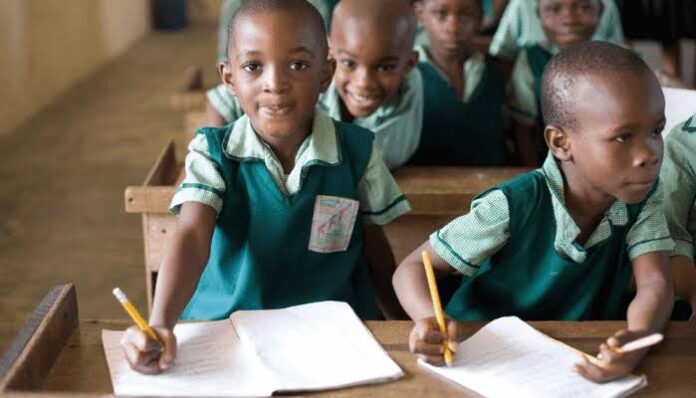By Ngozi Nwankwo
United Nations Children’s Fund, UNICEF, has expressed concern that despite the importance of early childhood education many Nigerian children are not accessing pre primary education.
The UNICEF Sokoto Chief of Field Office, Maryam Darwesh Said disclosed this at a two- day media
dialogue on Early Childhood Education in Nigeria.
Said explained that the Federal Government of Nigeria has an Integrated Early Childhood Development Policy, a multi-sectoral policy that comprises the education, health, nutrition, and child protection sectors, adding that despite the progress made in implementing ECE policy, there were still challenges of poor articulation and clarity of the policy, among others.
According to her, the policy aims to create an enabling environment for the provision of integrated ECD services and coordination mechanisms among sectors at decentralised levels.
“Nigeria has made some progress in the implementation of this policy. Despite the progress, there are still some challenges which include low awareness and understanding of the importance of ECD, poor articulation and clarity of the policy, weak coordination among the relevant Agencies, and most importantly poor funding.
“UNICEF considers early childhood as the most rapid and critical period of development in a human) life,” she said.
Speaking on the importance of early childhood education, the UNICEF Sokoto Chief of Field Office, disclosed that children who participate in well-conceived ECD programmes tend to be more successful in later school, and are more competent socially and emotionally, as well as show higher verbal, Intellectual and physical development during early childhood than those who are not enrolled into such programme.
She expressed worry that despite the benefit of ECE and owing to the number of public primary schools in Nigeria, many children are not accessing pre-primary education.
While assuring that pre-primary education remains a priority in UNICEF programming with Government in Nigeria, Said therefore, called on the media to ensure informed reporting to increase awareness of the critical benefits of Play based ECE in Nigeria.
She reiterated UNICEF’s commitment to ensuring that all girls and boys have access to quality early childhood development, care and pre-primary education so that they are ready for primary education (SDG 4.2, 2030).
While blaming poverty and other factors as responsible to low access to ECE, the UNICEF Education Specialists, Yetunde Oluwatosin worried over the persistence of inequality in Nigeria’s ECE,saying that it is only eight percent of children from the poorer household attend ECE.
Oluwatosin advocated need for establishment of more Community-based ECE centres to bridge the gap that exists between children from rich and poor families or urban and rural dwellers.
” Most times, children living in rural areas are being considered as children from the poor families. The most unfortunate thing these rural areas do not have enough Early Childhood Education centres.
” It has been observed that a large inequalities persist between the poorest children and the richest children’s ECE attendance rate translating to 8 per cent and 87 per cent, respectively.
“Globally, fewer than one in three children ages three to four attend ECE. In West and Central Africa, only one in four (24 per cent) attend ECE,” she said.
She also said only 36 per cent of Nigerian children attend early child education accounting for one in every three children.
Advocating for more investment in early childhood education in Nigeria, Oluwatosin linked reasons for the disparities to low public spending on ECE, lack of data on early childhood education planning, lack of infrastructure and limited play – based facilities within the school environment, the large inequalities that exist between the poor and the rich in the country as well as inadequacy of teachers to early learners in the country.
Speaking on the availability of teachers, Oluwatosin disclosed that there was shortfall on teachers/ pupils ratio, saying that Nigeria has only 154,000 early childhood teachers who are responsible for seven million learners.
“Nigeria has over seven million learners, but has only 154, 000 teachers. To close the gap, more teachers who are qualified and understand the importance of play in learning outcomes need to be enrolled.
“At age five, it is expected that every child must have started school. Curriculum for early childhood education should indicate play-base in addition to nutrition, safety and environment for a holistic growth.







